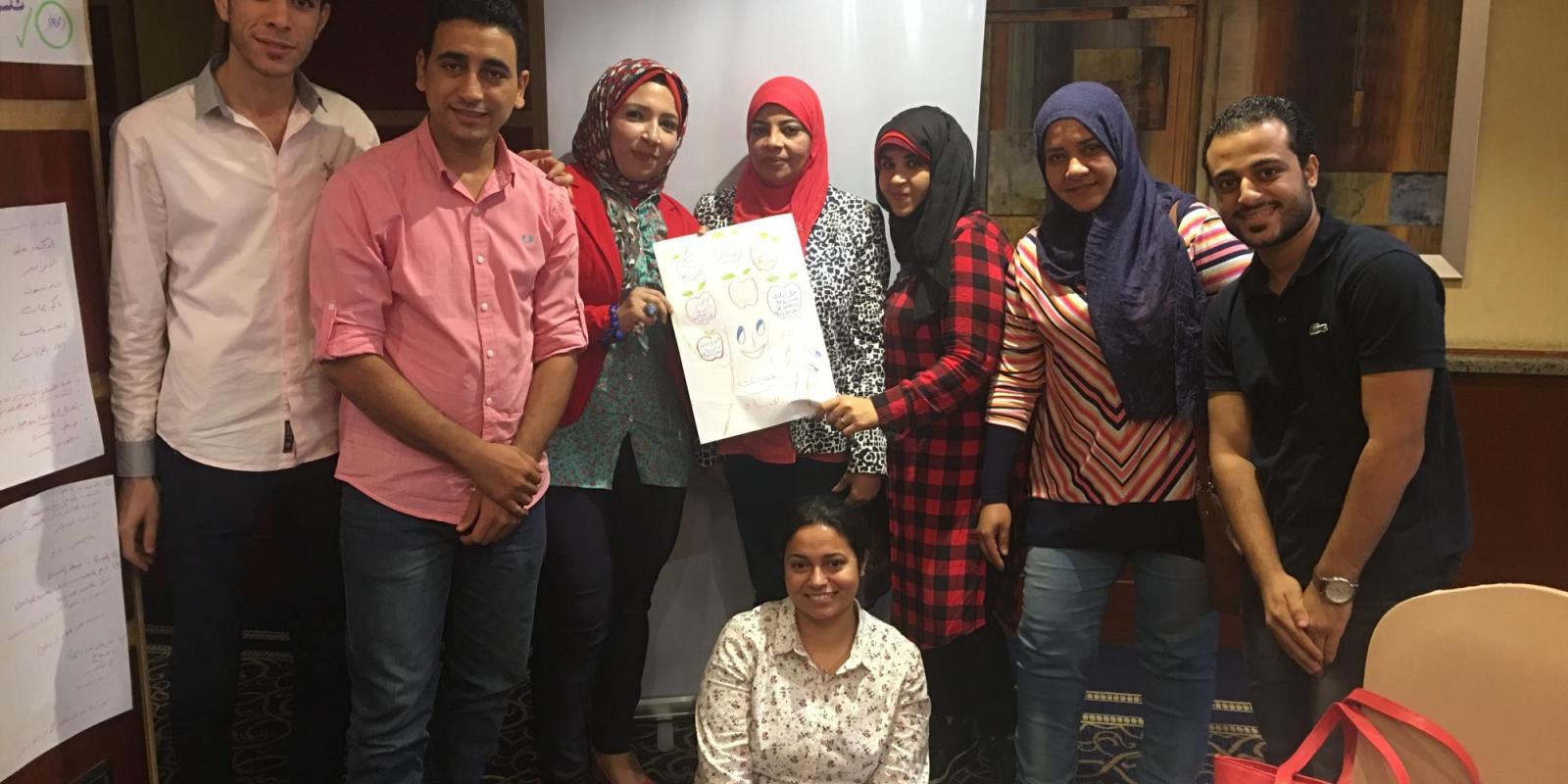
Community Psychology for Positive Parenting
According to a 2015 study by UNICEF and Egypt’s National Council for Childhood and Motherhood (NCCM) on violence against children in the governorates of Cairo, Alexandria and Assiut, 60 percent of youth between the ages of 13-17 were exposed to physical violence, while 78 percent were exposed to emotional or psychological violence.
Taking action to improve the livelihoods of Egyptian children and youth, Carie Forden, professor and director of the counseling and community psychology graduate program at AUC, has helped develop a project to train staff members at the NCCM Child Helpline to provide support and advice to parents. The project is part of a larger multimedia campaign promoting positive parenting, co-sponsored by NCCM and UNICEF, with support from the European Union. The campaign will suggest that parents call the NCCM’s Child Helpline, 16000, for assistance with parenting issues. “There was concern that the helpline staff did not have the necessary background to give advice to parents on positive parenting,” said Forden. “So we conducted an assessment of training needs for helpline and affiliated staff members and found a need for training in positive parenting, child abuse and neglect, and skills for communicating with and supporting parents, particularly techniques for motivating people to change.”
Forden and her collaborator Yasmine Saleh '91, AUC alumna and a former AUC psychology faculty member, developed and recently began the training workshops, with help from three psychology graduate students: Shaymaa Abdelmagid, Amira Ragy and Fatema Abou El Ela. The students have all assisted with the helpline training assessment and positive parenting curriculum development. Khadiga Al Sherif, another AUC graduate student, will also aid in the evaluation of the project.
Reflecting on her participation in the training project, Abdelmagid noted, "Working on this project has enabled me to understand parents’ problems and needs: the economic, social and cultural challenges that lead to negative life outcomes not only for themselves, but for their families and, in particular, their children. I have also come to understand the importance of investing in human resources through teaching and training. I must say I particularly enjoyed the interactive, collaborative aspect of this job and found it to be particularly rewarding."
Abou El Ela echoed similar sentiments. "It is important to raise awareness about parenting to prevent and stop child abuse, and this project gave us a unique opportunity to do so," she said. "It was a great hands-on experience in conducting needs assessments and curriculum development, as well as gaining professional experience working with such an important entity in Egypt like the NCCM."
Among the challenges faced in leading the helpline training program is the difficulty of adapting Western concepts to an Egyptian context. “For example, we are using experiential learning and critical thinking activities in the curriculum, and these are not common in Egyptian education,” explained Forden.
However, she noted, “it has been reassuring that these activities have worked quite well. The participants seemed to really enjoy designing posters on positive parenting tips. Positive parenting is also a relatively new concept in Egypt, but the participants have been very interested in learning this new approach. They are eager to improve their skills and care deeply about making a difference for the children and parents they work with.”
Saleh, who helped lead the workshop, added, "From assessment to implementation, the project helps bridge the gap between the East and West, and has shown me that we can find ways to disseminate knowledge that will hopefully make a difference."
Forden’s work with the helpline training workshops is only one component of a larger effort to lessen violence against children in Egypt. It is part of a larger project funded by the European Union, titled Expanding Access to Education and Protection for At-Risk Children in Egypt. “As part of that project, I have also been working for the past year on developing a national curriculum for child protection social workers in Egypt, focused on building their soft skills,” said Forden. “It’s a privilege to support NGOs in the important work they do to create positive change.”
Additionally, Nadra Zaki, a Child Protection Specialist at UNICEF who represented the organization's involvement with this project, noted that this helpline is an important part of an ongoing effort to support positive parenting in Egypt. "UNICEF is working with the NCCM and other governmental partners to build the capacity of service providers to counsel on positive parenting, establish evidence-based positive parenting programs linked to government services, promote mass communication campaigns and work with influencers to advocate and promote positive parenting," she says.
For Forden, it is community psychology’s “focus on prevention, building strengths and working in collaboration with communities” that makes her feel so hopeful for the future. “We’re in our infancy with community psychology in Egypt,” noted Forden. “However, in my experience, building on community strengths, tailoring programs to a community’s culture and utilizing evidence-based interventions work well here and are very much needed.”
